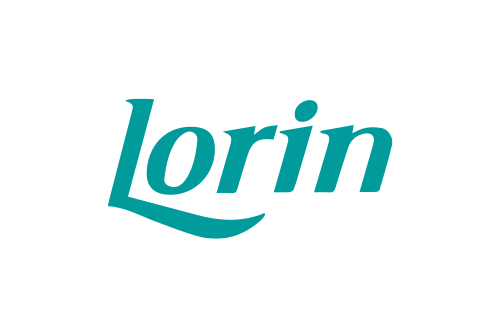Privacy Policy
of GIRONDE Household and Cosmetic Products Manufacturing and Trading Limited Liability Company
(3333 Terpes, Petőfi Street 2-4.)
Approved by: Béla Csepcsányi, Managing Director
Effective as of: February 1, 2024, until revoked or modified
This Notice is the property of GIRONDE Ltd. Any use of it in any form without the written permission of the Company is prohibited.
I. INTRODUCTORY PROVISIONS, PURPOSE AND SCOPE OF THIS NOTICE
GIRONDE Ltd., a company registered at 3333 Terpes, Petőfi Street 2-4 (hereinafter referred to as the Data Controller/Company), provides information through this data protection notice (hereinafter referred to as the Notice) to natural persons about its practices regarding the processing of personal data.
The Data Controller considers the protection and confidential handling of the personal data of its natural person partners, clients, customers, and employees of paramount importance. Accordingly, personal data is treated confidentially, and all necessary technical and organizational measures are taken to ensure data security. In this context, the Data Controller commits to ensuring that the data processing described in this Notice complies with the relevant Hungarian and European Union regulations, particularly the provisions of the General Data Protection Regulation (GDPR), which has been mandatory since May 25, 2018.
When preparing this Notice, in addition to the relevant and applicable legal regulations, the Data Controller also considered the recommendations and guidelines of the Hungarian National Authority for Data Protection and Freedom of Information (hereinafter: NAIH/Authority), such as:
- the “data protection requirements of prior information,”
- the “basic requirements for workplace data processing,”
- the “basic requirements for electronic surveillance systems used in the workplace,”
- as well as the documents issued by the Article 29 Data Protection Working Party and the European Data Protection Board.
The Data Controller reserves the right to amend this Notice and its contents at any time. The currently eƯective version of the Notice is published on the following websites before the changes come into force, accessible by clicking the "Data Protection" menu:
- www.gironde.hu
- www.justhouseholds.hu
- www.lorin.hu
Affected individuals will also be informed via the website. The Data Controller accepts this Notice as binding and follows it in all personal data processing activities.
If you have any questions regarding this Notice, you may contact the Data Controller at the email address below or via the contact details provided in Section II:
The data processing activities of the Data Controller are primarily, but not exclusively — governed by the following laws:
- Regulation (EU) 2016/679 of the European Parliament and of the Council of 27 April 2016 (GDPR);
- Act CXII of 2011 on the Right of Informational Self-Determination and on Freedom of Information (Infotv.);
- Act CXXXIII of 2005 on the Rules of Personal and Property Protection and Private Investigation (Szvtv.);
- Act I of 2012 on the Labour Code (Mt.);
- Act V of 2013 on the Civil Code (Ptk.);
- Act LXXXI of 1997 on Social Security Pension Benefits (Tbny.);
- Act C of 2000 on Accounting (Számv tv.);
- Act CLV of 1997 on Consumer Protection (Fgytv.);
- Decree 19/2014 (IV.29.) of the Ministry for National Economy on Procedural Rules for Warranty and Guarantee Claims in Contracts between Consumers and Businesses (Szav. r.);
- Act CL of 2017 on the Rules of Taxation (Art.);
- Act CLIX of 2012 on Postal Services (Posta tv.);
- Act XC of 2017 on Criminal Procedure (Be.)
Purpose of the Notice:
This Notice defines the principles regarding the processing of data of natural persons (data subjects) by the Data Controller, informs the data subjects about their rights in connection with their personal data, the means of exercising these rights, details of the personal data managed by the Data Controller, as well as the necessary contact information and available legal remedies. Additionally, the Notice reflects the Data Controller’s commitment to data protection and its intent to conduct its data processing practices in accordance with the applicable legal requirements and the statements, recommendations, and decisions of NAIH.
Temporal Scope of the Notice:
This Notice is effective from February 1, 2024, until it is revoked or amended.
Personal Scope of the Notice:
The personal scope of this Notice extends to the Data Controller and all natural persons affected by its data processing activities, explicitly including the data of employees (representatives) of legal entities in business relationships with the Company.
Material Scope of the Notice:
The material scope covers all data processing activities of the Data Controller, regardless of whether they are carried out in electronic or paper-based form.
The complete data protection documentation of the Data Controller consists of several other documents — formally separate from this Notice and recorded in distinct instruments. The most significant of these are listed below. These documents are available at the Company’s registered office located at 3333 Terpes, Petőfi Street 2-4:
- Regulation on the use of the electronic surveillance system and its annexes
- Information sheets/pictograms regarding the application of the electronic surveillance system, specific to each camera
- Impact assessment for the application of the electronic surveillance system
- Legitimate interest assessment for the application of the electronic surveillance system
- Register of data processing activities
- Data processing agreements
- Data protection notices concerning the use of company devices affecting employees (e.g., computers, email accounts) and other forms of monitoring
- Data breach incident register
- Legitimate interest assessments regarding further data processing necessary for the enforcement of the Data Controller’s legitimate interests, including data processing related to the monitoring of company devices
- Confidentiality declarations
- IT policy and its annexes
- www.gironde.hu
- www.lorin.hu
- www.justhouseholds.hu
- Name: Dr. Zsolt Hovancsek, sole practitioner attorney Email: [email protected]
- Name: Dr. Norbert Weisz, sole practitioner attorney Email: [email protected]
- www.gironde.hu
- www.lorin.hu
- www.justhouseholds.hu
- https://www.facebook.com/lorinhungary/
- https://www.facebook.com/justatisztaotthonert
- https://www.instagram.com/lorin_hungary
- https://www.instagram.com/justhousehold/
| DATA SUBJECTS | PERSONAL DATA PROCESSED | DURATION OF DATA PROCESSING |
|---|---|---|
| Any natural person (e.g., employees, customers, suppliers, delivery drivers, guests, business partners) who enters and remains in the area monitored by cameras, either on foot or by vehicle. | Image of the data subject and other personal data captured by the camera (location, time, behavior of the individual). In case of vehicle entry: vehicle license plate and other identifying features. | If not used, recordings are deleted after 5 calendar days from the date of recording. |
VI. OTHER DATA PROCESSING ACTIVITIES OF THE DATA CONTROLLER
Pursuant to Articles 13 and 14 of the GDPR, the Data Controller informs the data subjects through this Notice of the following information:
- the contact details of the Data Controller and its representative
- the name and contact details of the Data Protection Officer
- the legal basis of the data processing
- the categories of data subjects
- the categories of personal data processed and their source
- the purpose of the data processing
- in case of data processing based on legitimate interest, the legitimate interest of the Data Controller
- the duration of the data processing
- the consequences of the failure to provide data
- in case of data transfers, the recipients of the data
- in case of international data transfers, the recipients and legal basis thereof
- the rights of the data subjects and the possibilities for legal remedy
- all other material facts concerning the circumstances of the data processing
Further information listed in the GDPR (such as the rights of data subjects, the right to lodge a complaint with a supervisory authority, and the right to judicial remedy) is summarized in separate sections (X., XI.) of this Notice.
The Data Controller informs the data subjects that it does not perform automated decision-making or profiling in any form with regard to the personal data it processes. It also does not transfer data outside the territory of Hungary.
In the case of data processing based on the legitimate interest of the Data Controller, the balancing test related to the processing based on legitimate interest can be reviewed in full at the request of the data subjects. Such a request must be submitted to the Data Controller via its email or postal address.
In addition to the data processing operations listed in this Notice, the Data Controller also carries out other data processing activities, about which data subjects (such as employees regarding the processing of their personal data in connection with their employment relationship, or individuals affected by the electronic monitoring system) receive detailed information in separate documents.
Information related to data processing concerning the operation of the whistleblowing system is also provided to data subjects through a separate notice in accordance with Section 25 of Act XXV of 2023. This information is available on our websites by clicking on the whistleblowing menu item.
The Data Controller may also occasionally carry out other data processing activities not included in this Notice or in the above-mentioned documents, for which data subjects will receive detailed information before the processing of their data begins.
| DATA SUBJECTS | PERSONAL DATA PROCESSED | DURATION OF DATA PROCESSING |
|---|---|---|
| Natural persons designated as contact persons (employees, executive officers) at all business partners | name, corporate phone number and email address, and possibly (typically for sole proprietors) home address | until the termination of the relationship with the given business partner, or the existence of the contact status of the data subject |
| DATA SUBJECTS | PERSONAL DATA PROCESSED | DURATION OF DATA PROCESSING |
|---|---|---|
| All natural persons who purchase products offered by the Data Controller and request an invoice. | Name, address (country, city/town name, street, square, etc., house number, floor, door number), quantity of the product, its value (total amount payable), selected payment method, date of purchase, tax identification number in the case of a natural person who is a sole proprietor or primary agricultural producer (EU VAT number), company name, registered office, in the case of card payment: card and transaction data and transaction approval from the financial service provider. | Eight years pursuant to Section 169 (2) of the Accounting Act. |
| DATA SUBJECTS | PERSONAL DATA PROCESSED | DURATION OF DATA PROCESSING |
|---|---|---|
| All parties who request an offer from the Data Controller, providing their personal data. | Name, email address, subject of the message (offer), for requests received by post, the address data of the person requesting the offer: city name, street, street name, square, etc., house number, floor, apartment, postal code. | Until the validity period of the given offer expires. |
| DATA SUBJECTS | PERSONAL DATA PROCESSED | DURATION OF DATA PROCESSING |
|---|---|---|
| All data subjects who request information from the Data Controller regarding its products or services, formulate an opinion, idea, question, or proposal, with the provision of their personal data (not anonymous), and all this does not fall within the scope of a request for quotation | name, e-mail address, subject of the message (in the case of a request received by post, the data of the notification address of the person requesting information or giving an opinion, idea, question, or proposal: name of the locality, road, street, square, etc., house number, floor, door, postal code), content of the request, opinion, idea, question, proposal | until the purpose is fulfilled |
| DATA SUBJECTS | PERSONAL DATA PROCESSED | DURATION OF DATA PROCESSING |
|---|---|---|
| Any natural person applying for a job advertised by the Data Controller or submitting a voluntary application | name, place and date of birth, exact job title applied for, previous work experience, former employers, educational qualifications, driving licence, language certificates (if required for the role), motivation letter, e-mail address or postal address, and any other skills or competencies relevant to the given position | Until the purpose is fulfilled; or, if the applicant is not selected but consents to further data processing, their data will be retained for up to 1 year from the date of application, unless the data subject requests earlier deletion. |
| DATA SUBJECTS | PERSONAL DATA PROCESSED | DURATION OF DATA PROCESSING |
|---|---|---|
| All natural persons who submit a quality (warranty) complaint—either orally in person or in writing via electronic or paper-based means—concerning the products manufactured and distributed by the Data Controller. | The minutes recorded regarding the quality (warranty) complaint, including: the name and address of the consumer, the place, date, and method of complaint submission, a detailed description of the consumer's complaint, a list of documents, records, and other evidence presented by the consumer, the company's statement regarding the complaint, if the complaint can be resolved immediately, the name of the person recording the minutes, and—except in the case of oral complaints made via telephone or other electronic communications services—the signature of the consumer and the place and date of recording the minutes. | 3 years pursuant to Section 4 § (6) of Government Decree on Warranties (Szav. r.) |
| DATA SUBJECTS | PERSONAL DATA PROCESSED | DURATION OF DATA PROCESSING |
|---|---|---|
| All natural persons who have registered on Facebook or Instagram and share, like, comment on, or voluntarily follow the Data Controller's content on their social media pages | The registered name on the social platform, public profile picture, any additional photos, email address, other voluntarily uploaded data, opinions or messages related to the Data Controller or its products | Until the voluntary withdrawal of the data subject's consent by deleting the comment/post |
| DATA SUBJECTS | PERSONAL DATA PROCESSED | DURATION OF DATA PROCESSING |
|---|---|---|
|
- All employees who suffer a work accident
- Other natural persons present at the headquarters (guests, business partners)
|
- Personal data required in the report: name, social security number, birth name, mother's name, place and date of birth, gender, nationality, address, phone number (with the consent of the injured party), occupation (according to FEOR), nature of employment, and type of employment. In addition to these, other personal data necessary for reconstructing the accident and clarifying the facts, e.g., data of witnesses or persons providing first aid: name, address, phone number, statements, as well as photo and video recordings.
- For extraordinary events involving customers or visitors: name, phone number, contact address, in the case of minors the legal guardian's name and contact details, the date and description of the event/accident/illness, names and contact details of witnesses, actions taken by the Data Controller
|
Five years from the date the report is completed, according to the general statute of limitations |
| DATA SUBJECTS | PERSONAL DATA PROCESSED | DURATION OF DATA PROCESSING |
|---|---|---|
| All natural persons who wish to participate in prize draws organized on the Data Controller's websites and/or Facebook/Instagram pages in accordance with the announced game rules | Name, email address, and in case of winning, the winner's delivery address data: name of town/city, street name, house number, floor, door number, postal code. Additionally, the name registered on the data subject's Facebook/Instagram profile, comments submitted/posted in connection with the prize draw, and – subject to separate consent – display of the data subject as a winner on the Data Controller's Facebook/Instagram page. | Until the announcement of the result of the prize draw and/or until the voluntary consent of the data subject is withdrawn |
| Legal Basis | Right to Information | Right of Access | Right to Data Portability | Right to Rectification | Right to Erasure | Right to Restriction of Processing | Right to Object | Right to Withdraw Consent |
|---|---|---|---|---|---|---|---|---|
| Consent | ✓ | ✓ | ✓ | ✓ | ✓ | ✓ | ✗ | ✓ |
| Contractual Necessity | ✓ | ✓ | ✓ | ✓ | ✓ | ✓ | ✗ | ✗ |
| Legal Obligation | ✓ | ✓ | ✗ | ✓ | ✗ | ✓ | ✗ | ✗ |
| Vital Interests | ✓ | ✓ | ✗ | ✓ | ✓ | ✓ | ✗ | ✗ |
| Public Interest / Authority | ✓ | ✓ | ✗ | ✓ | ✗ | ✓ | ✓ | ✗ |
| Legitimate Interests | ✓ | ✓ | ✗ | ✓ | ✓ | ✓ | ✓ | ✗ |
We are looking for distributors!
We invite interested distributors to join us in delivering high-quality, affordable products to consumers worldwide.
Fill out the form and we will reach out!







